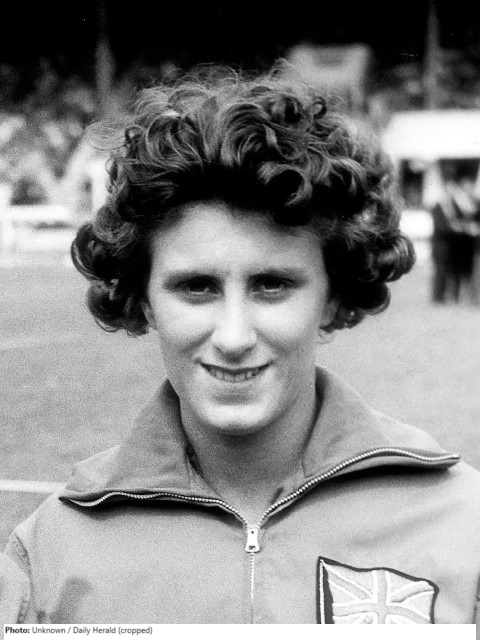A junior champion at every age group from 13 upwards, Dorothy Hyman was a world record holder as part of England’s 1958 Commonwealth Games winning 4×110 yard relay team at the age of just 17. In that same year she also took part in the European Championship where she was part of the silver medal relay team. Hyman’s first AAA title victories came in 1959 and she would win the 100/200 double in 1959, 1960, 1962 and 1963. She emerged into world class at the 1960 Olympic Games where, although not considered a potential medallist, she won each heat she contested and led the final until the remarkable Wilma Rudolph powered ahead for victory. Hyman also won a bronze medal in the 200 in Rome. The best year of her career was 1962 as she won the sprint double at the Commonwealth Games and emerged with a medal of each colour from the year’s European Championships including the 100 m gold. Although there were no major championships in 1963 she was dominant in domestic and international races and was voted Britain’s Sports Personality of the Year ahead of motor racing world champion Jim Clark. A fit Dorothy Hyman would have been a serious contender for honours at the Tokyo Olympic but her season had been ruined by injury and she salvaged only a relay medal from the Games. Still only 23 she became tired of the commitment needed to excel at the sport and retired from track at the end of 1964. Although she later said that regretted her decision to retire, she was unable to return to international competition due to profits earned from writing her autobiography in 1965. Hyman turned to coaching and set up the Dorothy Hyman Track Club based at the stadium in the home town of Cudworth that have been named in her honour. She was allowed to run in domestic races in 1969 and added a further AAA title to the eight she had won previously but otherwise she confined herself to coaching the next generations of British sprinting. The daughter of a coal miner, Hyman herself worked in the offices of the National Coal Board for 30 years before being made redundant. She later worked with people with learning disabilities.
Personal Bests: 100 – 11.54 (1964); 200 – 23.2 (1963).

 Great Britain
Great Britain GBR
GBR GBR
GBR